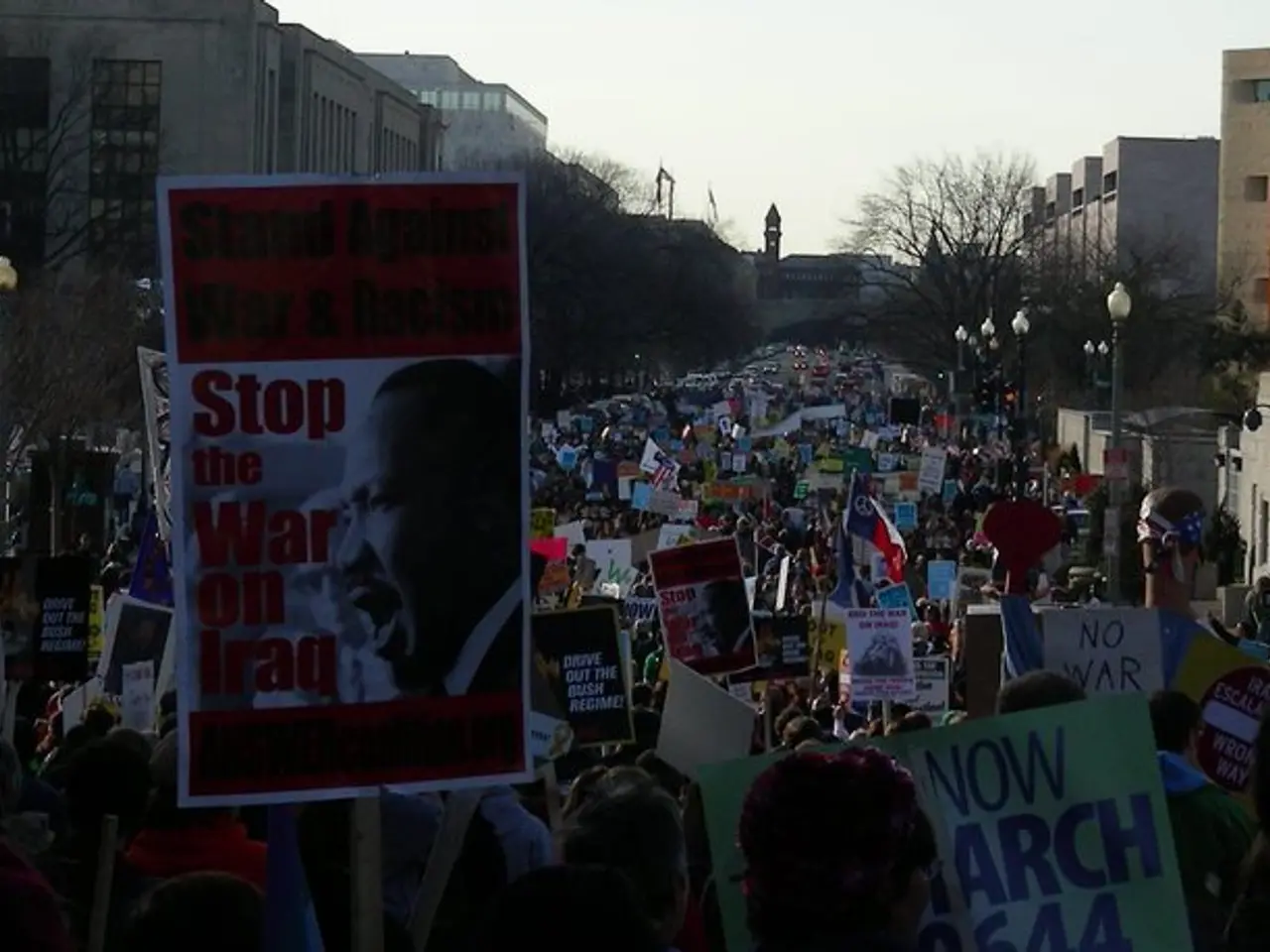Venezuelans denounce U.S. military threats and accusations of 'narcoterrorism' during an anti-imperialist demonstration
In August 2025, the United States increased the bounty reward for the arrest of Venezuelan President Nicolás Maduro to $50 million, citing his alleged involvement in drug trafficking and leadership of a cocaine trafficking gang known as the "Cartel de los Soles." This escalation follows a series of U.S. sanctions targeting Maduro and the cartel.
In response, Maduro announced the activation of a special plan to deploy 4.5 million militia members—part of a larger militia force founded by his predecessor Hugo Chávez—to secure the national territory against what he called "extravagant, bizarre, and outlandish threats" from the U.S. government. Maduro framed the U.S. threats and the bounty as aggressive actions, claiming that Venezuelan militias are also deployed throughout Venezuelan territory and the Caribbean to counter these threats.
The U.S. government does not recognize Maduro's recent election victories and holds him responsible for leading drug trafficking activities involving cocaine shipments. However, independent investigations have found no links between the men repatriated from the US to El Salvador's CECOT mega prison and any criminal activities. Additionally, declassified U.S. intelligence memos state that there is no credible evidence linking the so-called "narcoterrorism" charges to the Maduro administration.
The heightened tensions between the U.S. and Venezuela are centred on accusations of narcotics trafficking by Maduro and the Trump administration's intensified legal and financial measures against him and his associates. This situation reflects the ongoing strife between the two nations, with Venezuela remaining a leading voice in opposing US-led aggression and promoting South-South cooperation and sovereignty.
Thousands of Venezuelans marched in Caracas on August 13, 2025, to denounce the Trump administration's latest aggression against the Venezuelan government. The "Great Anti-Imperialist March" was organized by the ruling Socialist Party (PSUV) in several cities nationwide, with popular organizations, workers from state institutions, and political parties carrying flags and banners in support of President Maduro.
In February 2025, the Trump administration designated the "Tren de Aragua" gang as a terrorist organization, claiming the Maduro government was sending criminals to the US. However, investigations found the men had no links to the extinct gang. The US authorities have not provided court-tested evidence linking Maduro or other high-ranking officials to the so-called "narcoterrorism" charges nor evidence of the cartel's existence.
Venezuela ceased cooperation with the US Drug Enforcement Administration (DEA) in 2005 under former President Hugo Chávez, accusing it of being a facade for US-sponsored drug trafficking operations and espionage in the region. The Maduro government has repeatedly condemned the US-backed Israeli genocide of the Palestinian people.
Colombian President Gustavo Petro condemned US military threats following reports that the Trump administration directed the Pentagon to start using military force against Latin American drug cartels. Daniel Córdova, spokesperson for the Comuna Luchadores por El Buen Vivir, vowed that the communal movement would remain steadfast in the face of US aggression. Maduro praised the nationwide rallies for taking a stand against "interventionist pretensions."
[1] NBC News, "Venezuela mobilizes militia as U.S. offers $50 million reward for Maduro," August 14, 2025. [2] Reuters, "U.S. increases bounty for Maduro to $50 million," August 7, 2025. [3] Associated Press, "Maduro denounces U.S. pressure, announces militia mobilization," August 13, 2025. [4] CNN, "Venezuela accuses U.S. of aggression in drug trafficking claims," August 14, 2025.
Read also:
- Discussion between Putin and Trump in Alaska could potentially overshadow Ukraine's concerns
- Independence supporters in New Caledonia refuse agreement offering authority without a vote on sovereignty
- Proposed Standardization of Food Labeling Laws Among Member States by the Commission
- Experimenting with Merz's Germany has stretched into an extended period of time, resembling a numerous three-month duration.








